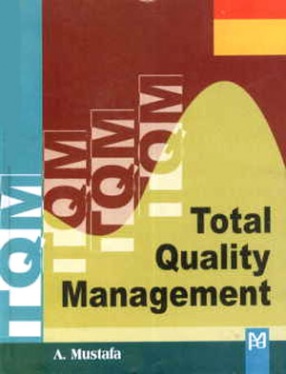This book entitled "Total Quality Management" is meant for all branches of B.E., courses offered by the Anna University in Tamil Nadu. It covers the syllabi containing five chapters. In the introductory 1 chapter, quality is defined and the quotations of quality gurus are given. The dimensions of quality and quality planning are explained. The types and techniques of quality cost and their measurements are listed vividly. The basic concepts of TQM, historical review, principles and pillars of TQM are narrated. The concept of leadership, and the role of senior management are also discussed. Quality council, quality statements, and strategic planning are the other areas which expressed in simple language in this chapter. Deming philosophy and barriers to TQM implementation are explained with the help of diagrams and illustrations.
The second chapter under the heading "TQM Principles" deal with customer satisfaction, customer perception of quality, measurement of customer satisfaction, customer complaints, service quality, and customer retention. The involvement of employees, the theories of motivation, empowerment, the need and merits of team work, recognition and reward, Japanese five Ss, Kaizen principle are lucidly explained with diagrams and tables. Supplier partnership, partnering, sourcing, supplier selection, supplier rating, relationship development are also discussed in detail. The basic concept of performance measure and the strategies involved are very neatly explained and explored in this chapter.
The third chapter "Statistical process control" presents a clear picture about mean, median, mode, mean deviation, standard deviation, variation, population and sample, normal curve, control charts for variables and attributes with suitable visual narrations. The concept of process capability, six sigma and seven old and new tools of management are also explained with diagrams at the end of this chapter.
In the fourth chapter, TQM tools namely benchmarking and its process, reasons to benchmark, quality function deployment, house of quality, QFD process and its benefits are elucidated. Taguchi's loss function, total productive maintenance and the concept of FMEA and improvement needs and stages are also critically stated at the end of this chapter.
In the last chapter quality systems are well explained. BIS, ISO 9000-2000, ISO 14000 and other quality systems, their requirements and benefits are enumerated. documentation, and quality auditing form the last part of this book.
Bibliography and model questions are attached as appendices.







There are no reviews yet.